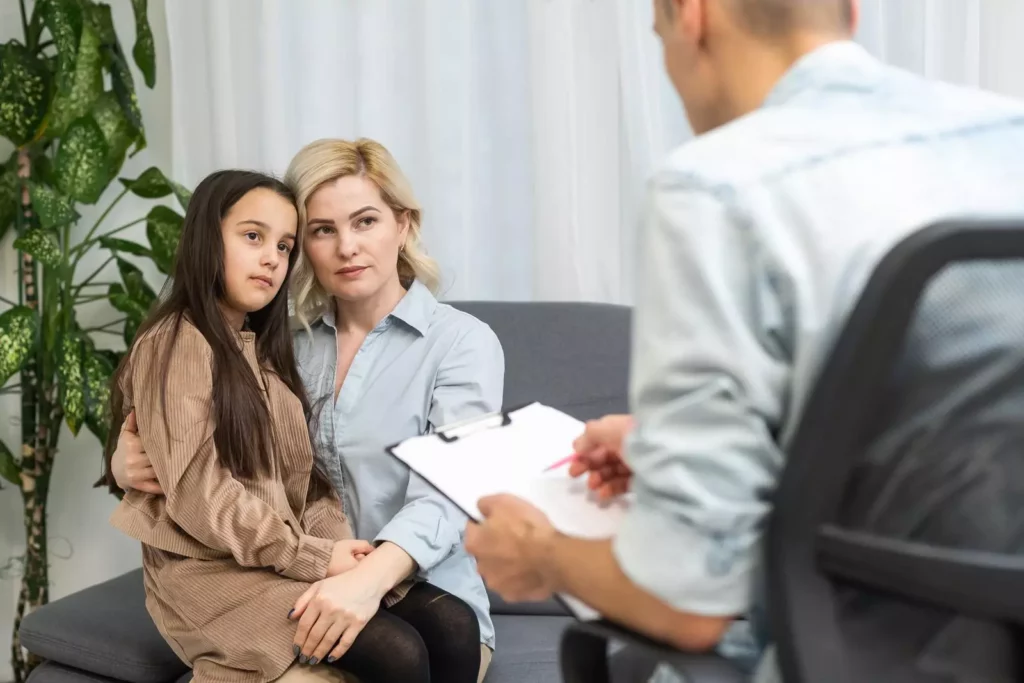Psychotherapy for ADHD
Living with ADHD can cause more frequent and upsetting setbacks in social relationships, the workplace, school, and daily organization. Both adolescents and adults experience tangible benefits with psychotherapy for ADHD that focuses on removing cognitive distortions. By introducing techniques for enhancing structure, focus, and impulse control, individuals are taught how to manage their symptoms and replace negative habits with positive ones. Disorganization, procrastination, poor time management, inconsistent motivation, and lack of self-regulation are characteristic of ADHD. Goal-oriented psychotherapy is founded on cognitive restructuring and recognizing how thoughts cause emotional problems.
Unproductive internal dialogues prevent a person from making progress with forming new, productive habits. Therapy helps patients understand how their own thoughts influence their actions. Psychotherapy seeks to alter illogical thought processes that make people struggle to stay focused or complete tasks.

Who and how we help
ADHD psychotherapy for adults
ADHD psychotherapy for adults is an approach to treatment that includes education, skills development, and psychological counseling. Depending on the patient, medication may be part of treatment to help stabilize symptoms. Adults with ADHD experience difficulties in all facets of life due to extreme procrastination, difficulty finishing tasks, and impulsive conduct. Fortunately, there are techniques that help patients manage their ADHD symptoms. Therapy helps people develop good habits, work effectively, and communicate with others more effectively. Together with a therapist, patients learn to identify and work on their strengths. These techniques for ADHD call for persistence, perseverance, and, most importantly, a positive outlook. By utilizing these strategies, people can increase their self-worth while reducing symptoms.
ADHD psychotherapy for adolescents
Children are first evaluated by a specialist to receive a clinical diagnosis. The doctor will discuss treatment options based on the child’s age and symptoms. ADHD psychotherapy for adolescents is part of treatment where the teen meets with a therapist over a few months to identify and address underlying issues that could be the cause of ADHD. Stimulant medication is often incorporated to ease symptoms.
A psychiatrist, psychologist, or other mental health professional may offer behavior therapy, social skills training, parenting skills training, and counseling to children with ADHD. Some youngsters may also have depression or an anxiety problem. Therapy in these situations are beneficial for both the coexisting issue and ADHD.
ADHD psychotherapy treatment steps
After a diagnosis is made, the doctor develops a treatment plan suited to the patient’s age, needs, and symptoms. If medication is included, there are regular follow ups to monitor the efficacy, dosage, and potential side-effects. The doctor will make adjustments to the medication as necessary. The patient will also have ADHD psychotherapy sessions with a therapist.
When taken in addition to other therapies, ADHD medication is more effective as the combined approach targets emotional and behavioral problems and teaches the patient new coping mechanisms. There are many things people can do to lessen the issues that ADHD can lead to. If patients apply the learned techniques, controlling symptoms will come naturally.

The benefits of ADHD psychotherapy treatment
The Good Health team is experienced in treating ADHD in adolescents and adults and offers effective treatments in a trusting and safe environment. ADHD psychotherapy treatment is active remedial therapy that involves counseling to resolve difficult and harmful behaviors and beliefs. Through psychotherapy, patients gain more focus and clarity. This increased mental focus reduces receptiveness to distractions. Therapy also helps enhance the patient’s awareness and self-esteem as their focus shifts from negative thoughts to refining their strengths. Treatment also benefits those who have troubled relationships due to unmanaged ADHD. The patient’s overall health improves and reduces the risk of developing more serious mental health conditions while keeping impulsive behavior in check. People with ADHD can regain control of their lives by better managing symptoms through education, counseling, and skills and behavior techniques
FAQs
How does ADHD affect quality of life?
ADHD can have a large negative social, mental, and emotional impact on a person’s life, disrupting relationships, increasing risky behavior, and affecting employment and school performance – none of which lead to good outcomes. Psychotherapy treatment for ADHD offers a good long-term prognosis and improved quality of life.
Is therapy or medication better for ADHD?
While these strategies have their own benefits and roles in the efficacy of psychotherapy treatment for ADHD, medication has been proved to work best when paired with therapy. Each complements the other.
What to expect from virtual ADHD psychotherapy?
Most aspects, including effectiveness, are the same between in-person and virtual psychotherapy treatment for ADHD. The main difference is that the patient and therapist engage online using video and sound technology. Counseling sessions are held in this format as well as follow ups for medication monitoring.
Can treatment help to completely get rid of ADHD?
Treatments for ADHD include medication, different forms of psychotherapy, behavior therapy, and education services. When combined, these elements can significantly reduce related symptoms and improve quality of life, but they do not cure ADHD.
When to stop therapy for ADHD?
The duration of psychotherapy treatment for ADHD depends entirely on the individual. Some people need treatment for longer, and this is determined by age and severity of symptoms. Some patients learn to compensate for their ADHD symptoms after a few months of therapy.
How can I support my ADHD psychotherapy treatment?
Commitment to see therapy through to the end is one of the most important things you can do. It is also crucial to nurture your health and ensure you get sufficient sleep and exercise, and follow a healthy, balanced diet.
Don't hesitate to contact us
Have any questions?
Please complete the form below and we will get right back to you.